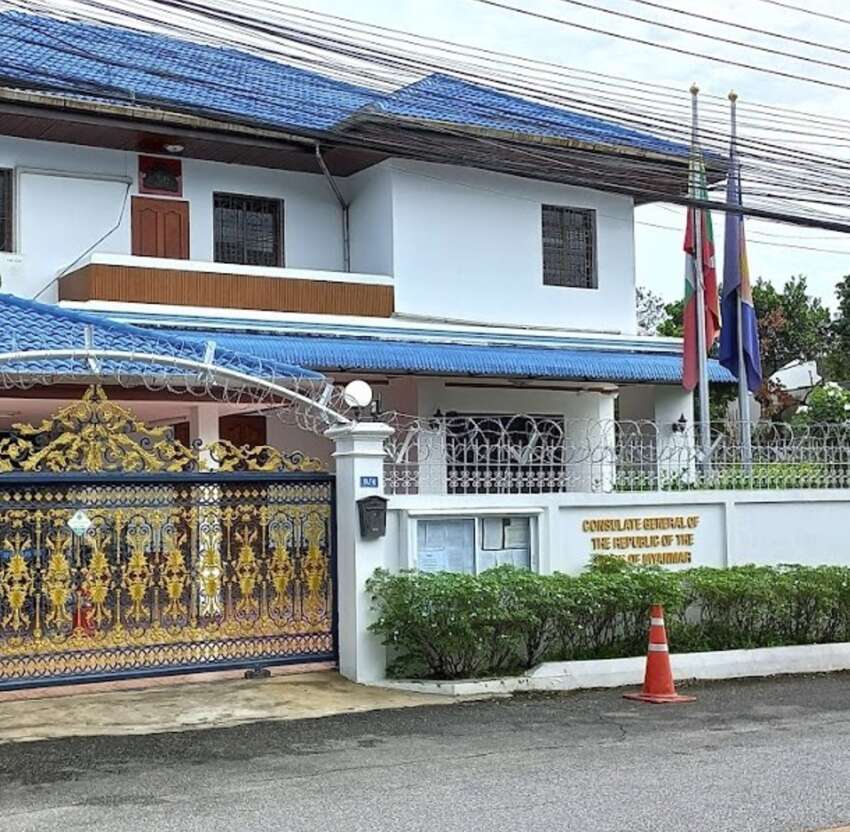
The Military Council’s Consulate Office in Chiang Mai announced on March 18 that Myanmar citizens residing in Thailand must submit recommendations from their ward administrators and police stations in Myanmar to obtain embassy endorsements for visa and stay permit extensions. For those living in Chiang Mai, obtaining an embassy endorsement will require copies of recommendations from their ward and police station in Myanmar, along with the original TM30 form showing their current address in Thailand.
The Consulate General’s Office has stated that they will only process endorsements for tourist visas and visa extensions, declining to handle other types of endorsements. Meanwhile, the Myanmar Embassy in Bangkok continues to provide endorsements for bank account openings and driver’s license applications that are accepted by Thai authorities. Notary matters are handled similarly, though black and white copies are accepted in Bangkok, and visa extensions there do not require ward and police station recommendations, according to a source close to the Myanmar Embassy in Bangkok.
At the Military Council’s Consulate Office in Chiang Mai, applications for notary and various embassy endorsements are only permitted for Myanmar citizens with long-term residence permits in Thailand. For notary services, original translated documents must be submitted along with color copies of all other documentation. The office has announced that regular embassy endorsements will take 30 days to process, while notary certifications may take up to 14 days. These regulations will be implemented starting March 19.
A Civil Disobedience Movement (CDM) officer residing in Bangkok has analyzed that these strict regulations are specifically targeted to oppress CDM staff and political activists who have fled to Thailand. He further commented that requiring recommendations from wards and police stations in Myanmar is not a proper procedure and will create significant difficulties for CDM participants and political activists. This requirement appears to be deliberately designed to create obstacles for those who have opposed the military council’s administration.



